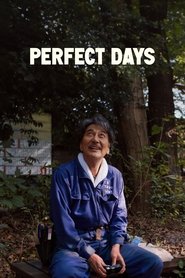It's hard to shake the feeling that Wenders saw Chantal Akerman's Jeanne Dielman hit the top of Sight and Sound's recent poll and said to himself: "Hey, that's great… but what if it was actually about the life of a male toilet cleaner in Japan instead?"
There's a certain innocent charm to Perfect Days, but Hirayama's allure sours to a creepy kind of naïveté when you realise the film seems to lack any kind of interest in his world and, moreover, positions that as Good Thing, Actually. What did Hirayama do before he felt compelled to clean toilets, for example, and why is this movie so incurious about what that might be? At least in Robert Bresson and Paul Schrader's films about solitary men who abuse the potential pleasures of a rigorous routine and ascetic living as a form of self-punishment, they have the courtesy to get the protagonist to write a diary to let us know where they are coming from and where they are going. Hell, why is Perfect Days even set in Tokyo at all, apart from the shopworn bit of 'trivia' swirling around the West that "Japan has, like, really weird toilets" that I thought we had left behind with Lost In Translation (2003).
The now decades-old canard that "analogue just sounds better than digital" is made clumsily literal a number of times as well, and the strengths of the film resider in how it can somehow render a number of clichés so beloved of pub bores everywhere in a way that doesn't make you roll your eyes. Still, the comically on-the-nose needle drops were a bit too much for me. It would be kinda funny to learn they were included from 96kHz/24-bit digital remasters, wouldn't it?
Toes the line between poignant and maudlin, particularly for Wenders’s tendency to fetishize Hirayama as the poor man who knows his place. The film is like the cinematic equivalent of a wealthy artist telling a janitor that he’s lucky because he’s acquainted with real life. And the decision to make him silent for much of the runtime, an observer of pettier folk, doesn’t refute this impression. [A] film concerned with life’s little pleasures might benefit from a few namedrops that aren’t so conscientiously planted so as to bolster Wenders’s own bona fides as an aesthete. Faulkner’s writing doesn’t readily suggest fodder for chilling out after hours of cleaning up piss and shit—which we never see, as the scatological element of Hirayama’s job is inconvenient to Wenders’s naïve idealizing of blue-collar work. [N]o moment, no stray detail, disrupts the pervading class condescension that Wenders mistakes for empathy. For a slice-of-life film to work, there must be an illusion of randomness, and Wenders can’t escape his old, deliberate ways. Most of the film’s scenes feel planted, as if Wenders is introducing exhibits in a case.
— Chuck Bowen (Slant Magazine)
Visually, the filmmakers never suggest the routine is dull or stifling by employing the same shots over and over; rather, the variety of angles and perspectives suggest that Hirayama treats every day as something new. [H]owever, the production’s boxy Academy aspect ratio acknowledges that the protagonist has actively limited his world—a more evident theme in the second half.
— Brian Eggert (Deep Focus Review)
[Hirayama's] incuriosity is Wenders’s own. [T]he strange vision of the hyper-devoted, passionate toilet cleaner [s]uggests, above all, a nostalgia, Wenders’s own, for an age when people hired to do a job could be expected to do it with thoroughness, care, and attention to detail—to surpass expectations and set standards of excellence. In short, it plays like nostalgia, like a lament by someone used to hiring support staff that good help has become hard to find. [W]enders, rather than attempting to consider the country as it is now, is content to work with a received mythology regarding Ozu’s refined aesthetic of restraint. In other words, he stereotypes, celebrating uncritically an order from which he’s an outsider, while enjoying the privileges of the tourist, the celebrity, and the advocate.
— Richard Brody (The New Yorker)
[A] subplot involves Hirayama’s niece [w]ho runs away from home and shows up at his door. Their rapport is warm and amusing, but it eventually turns toward a broader family drama that is at once obvious and underdeveloped. And a brief sequence toward the end brings in a character with cancer—which feels, as with the film’s use of music, like a shortcut to profundity.
— Zachary Barnes (The Wall Street Journal)

